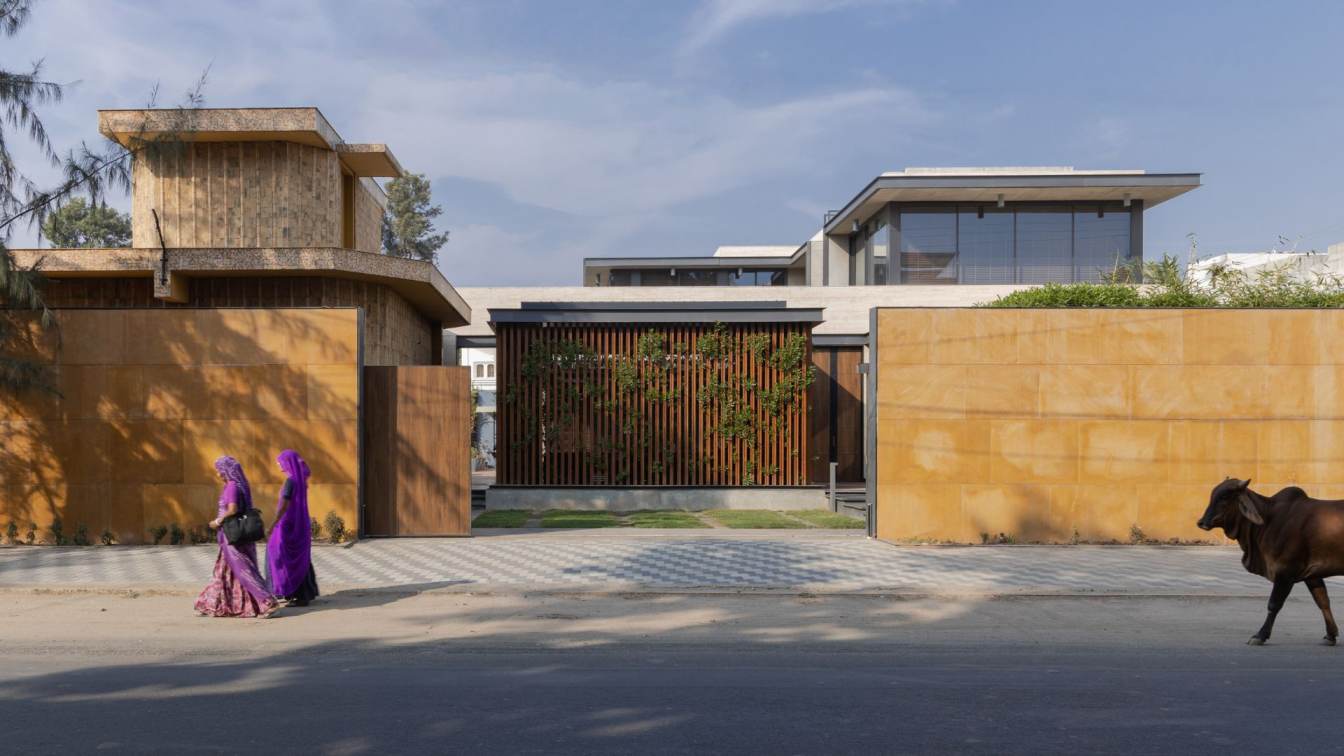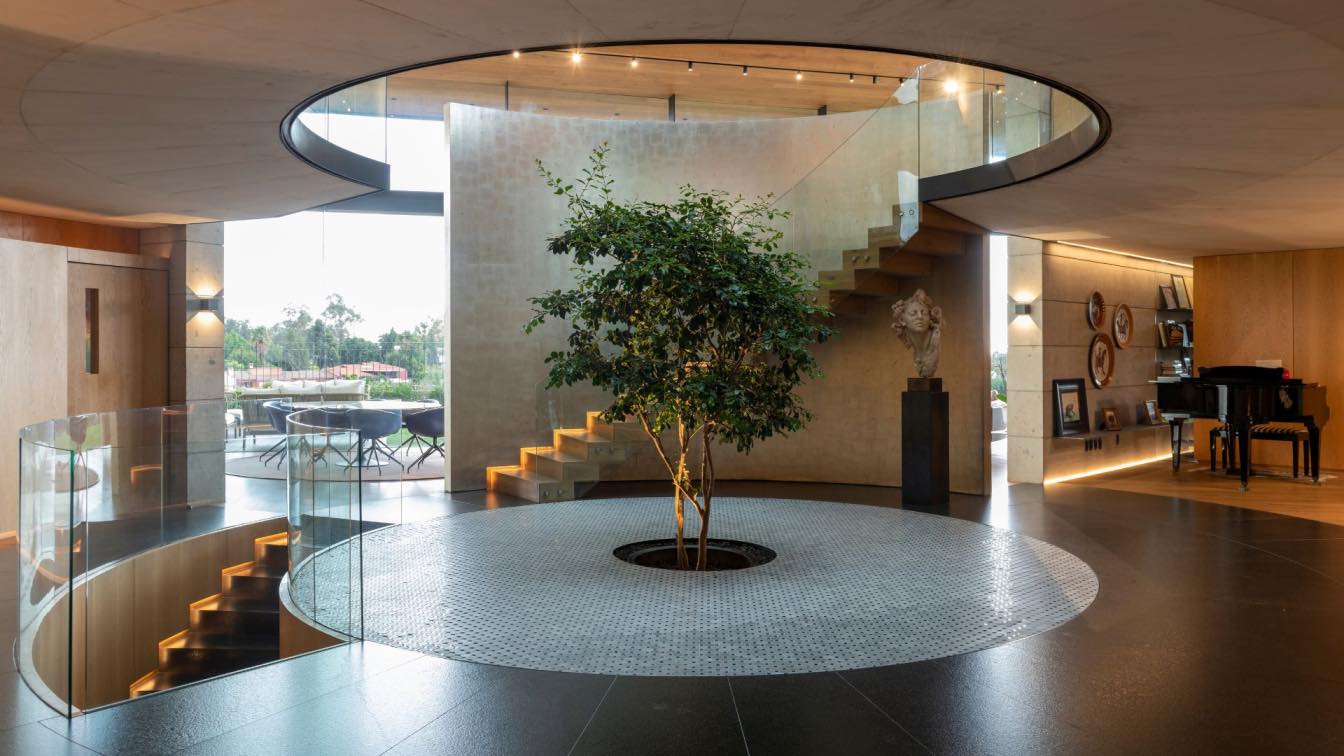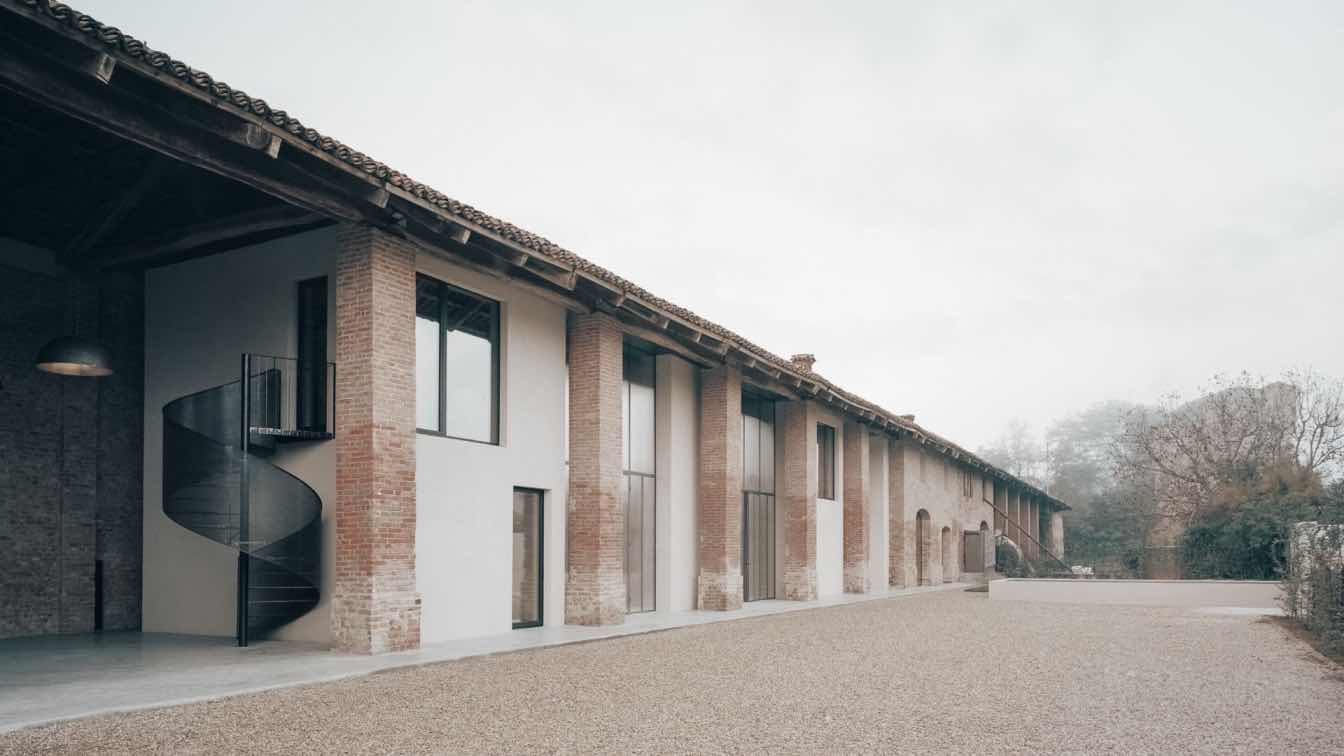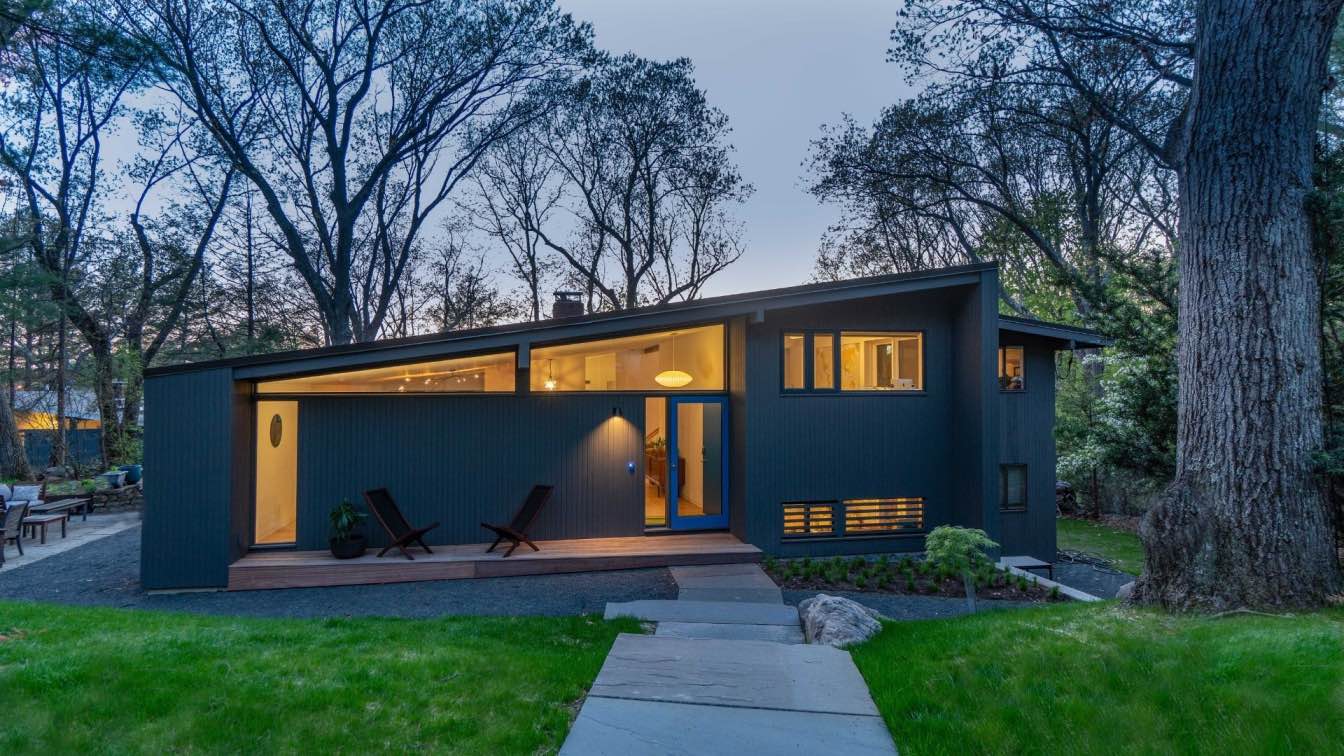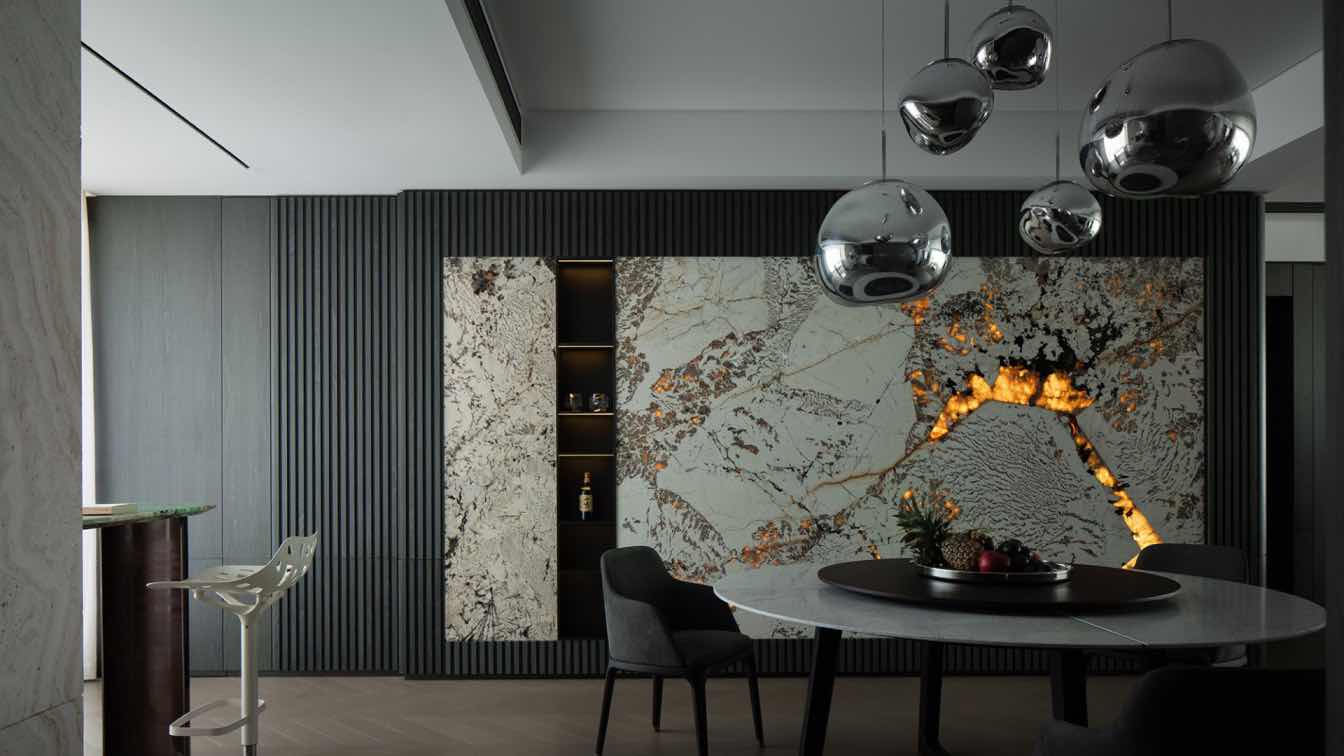INI Design Studio: A home is more than just a physical structure; it embodies the values, culture, and aspirations of its occupants. In today's embrace of innovation and progress, traditional architecture serves as a timeless link to our heritage, reflecting centuries of wisdom and offering sustainable solutions. It fosters a sense of community and connection with the past, creating spaces where families can thrive, and traditions can be preserved.
Located within the tranquil environs of Anand city in Gujarat, 'The Annexe' stands as an embodiment of the delicate equilibrium between contemporary living and the deep-rooted principles of Indian culture. The extension of an existing multi-generational family house, it has been crafted to cater to the expanding needs of the family and their evolving lifestyle. With a built-up area of 4500 square feet, 'The Annexe' presents an exquisite manifestation of minimalist design, embodying a subtle and unpretentious elegance.
Exemplifying a modern aesthetic, the house sits as a sleek, elevated structure juxtaposed against a monolithic expression of travertine stone accentuated by subtle hints of concrete, metal, and wood detailed to perfection. Inspired by traditional Indian homes, the spatial layout centers around a semi-covered courtyard. Enclosed by family spaces and an adjoining lawn, this central courtyard acts as the heart of the abode. The upper level of the dwelling, showcases a captivating combination of glass, wood, and floating concrete canopies, adorned with metal accents along their edges, and is dedicated to private quarters that overlook the courtyard and pool.

Abundant windows provide panoramic vistas that seamlessly connect the interior and exterior spaces. The compound wall, utilizing locally sourced stone as cladding and in gabion form, creates a sense of tranquillity and seclusion, shielding the abode from the clamour of the bustling street and creating a peaceful haven. Embracing a holistic approach to sustainability, 'The Annexe' interweaves traditional wisdom with modern innovations. Passive cooling techniques, such as courtyards and verandas, create comfortable microclimates. Strategic placement of windows, shading devices, and thermal mass optimizes energy efficiency. LED lighting, motion sensors, and smart home technology further enhance energy conservation and user convenience.
Real-time energy monitoring enables informed decisions on energy optimization, while Building Integrated Photovoltaics (BIPV) seamlessly incorporates solar panels into building materials, transforming surfaces into solar energy generators without compromising on aesthetics. The use of locally sourced sustainable materials, including bamboo, reclaimed wood, and recycled materials, reflects a commitment to reducing carbon footprint. Water-saving technologies like smart irrigation systems, greywater recycling, and low-flow fixtures reduce water wastage, while waste management practices help align with the sustainable ethos.
Biophilic design elements such as living green walls, indoor gardens, and natural light improve indoor air quality and mitigate the heat island effect. Energy storage solutions, like advanced batteries or flywheel systems, optimize energy utilization by storing excess solar energy for later use, reducing reliance on the grid. Internet of Things (IoT) sensors gather data on environmental conditions, occupancy patterns, and energy usage, enabling automation processes and promoting sustainable practices throughout the residence.




























